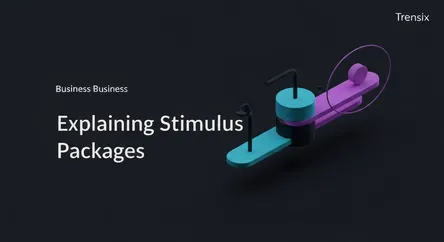Business
Explaining Stimulus Packages

Learn what a stimulus package is, why governments use them, and how these economic measures like checks and tax cuts can directly affect your finances.
What is it?
A stimulus package is a set of economic measures from a government designed to energize a struggling economy. The main goal is to boost consumer spending and business investment when they falter. These packages are a form of fiscal policy and can include tools like direct payments (stimulus checks), tax cuts for individuals and corporations, and increased government spending on things like infrastructure or unemployment benefits. By injecting money into the system, governments hope to increase demand, prevent job losses, and encourage economic activity.
Why is it trending?
Stimulus packages become a major topic during economic downturns or global crises, such as the 2008 financial crisis or the COVID-19 pandemic. When an economy contracts, governments often turn to stimulus as a key tool to prevent a deeper recession and kickstart a recovery. The massive scale of recent packages and the widespread public debate over their necessity, size, and contents keep them in the news. Media coverage and political discussions about direct payments and support for businesses ensure they remain a trending economic topic.
How does it affect people?
Stimulus packages have a direct impact on people's finances. Many individuals may receive a direct payment or check, increasing their disposable income for bills, essentials, or savings. Tax cuts can also leave more money in paychecks. Indirectly, government spending on projects can create jobs, and support for industries can prevent layoffs. While the goal is to provide immediate financial relief and promote stability, these packages often spark debate about their long-term effects, such as increasing national debt and the potential for future inflation.